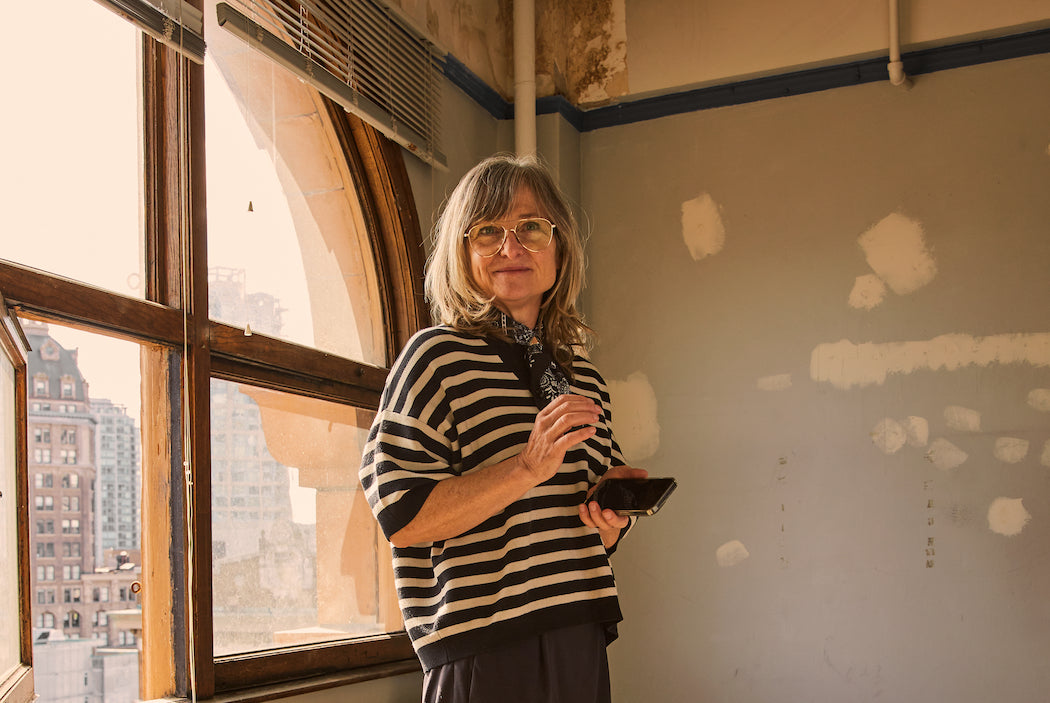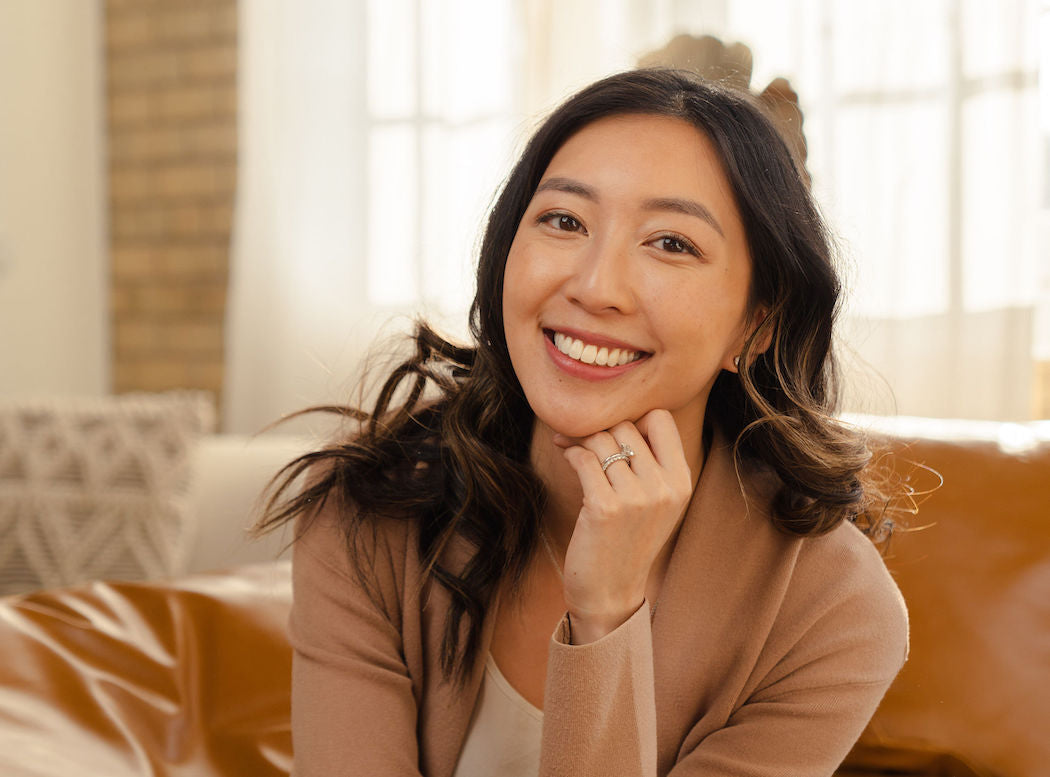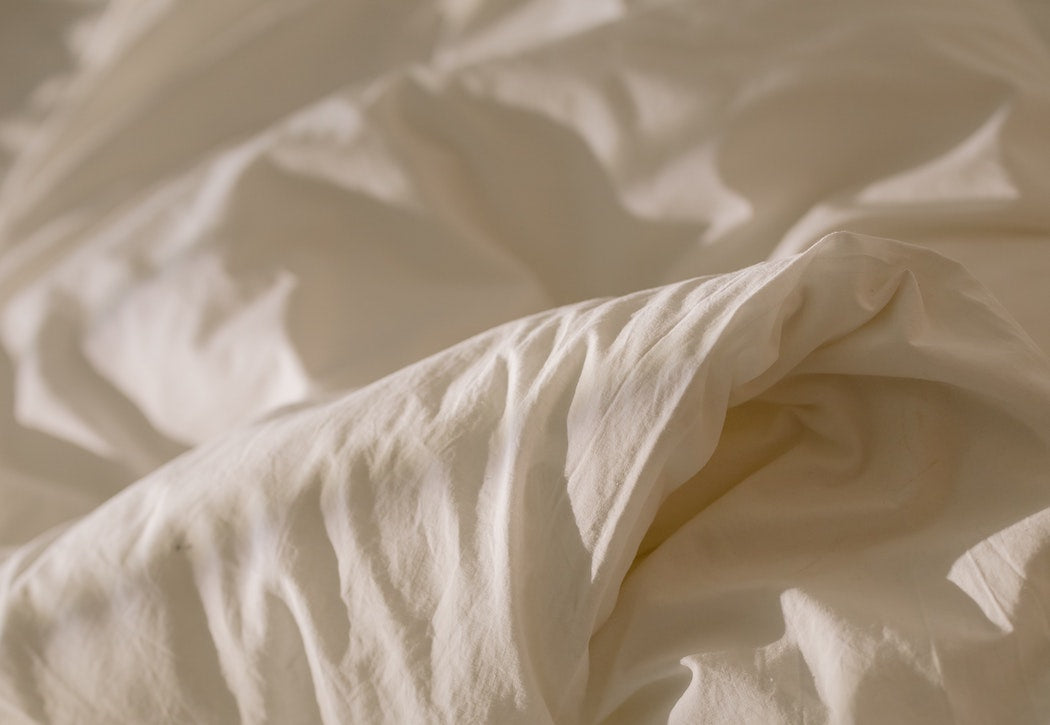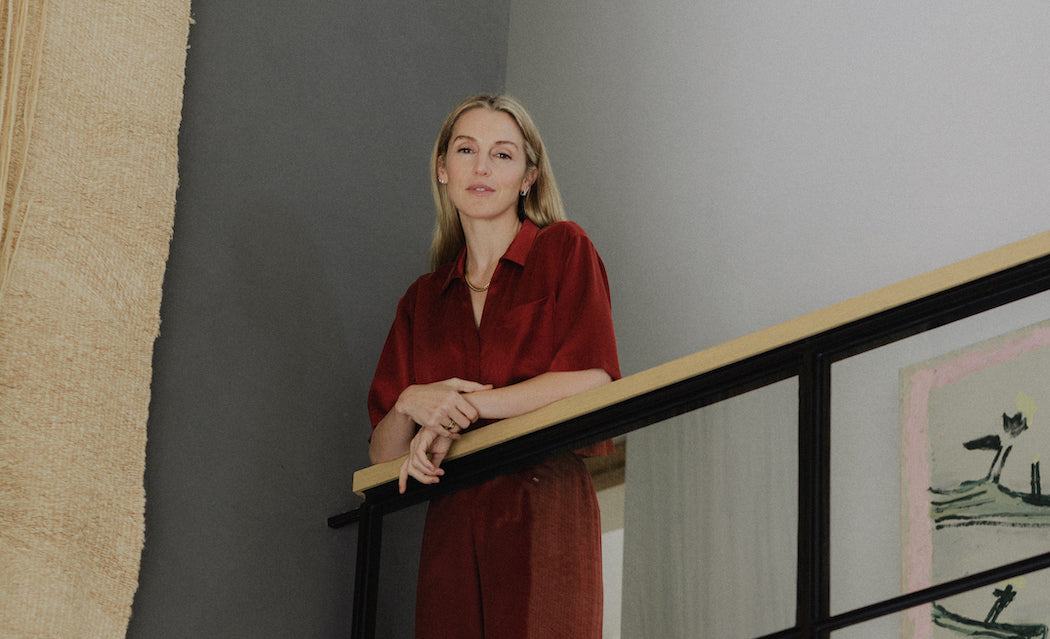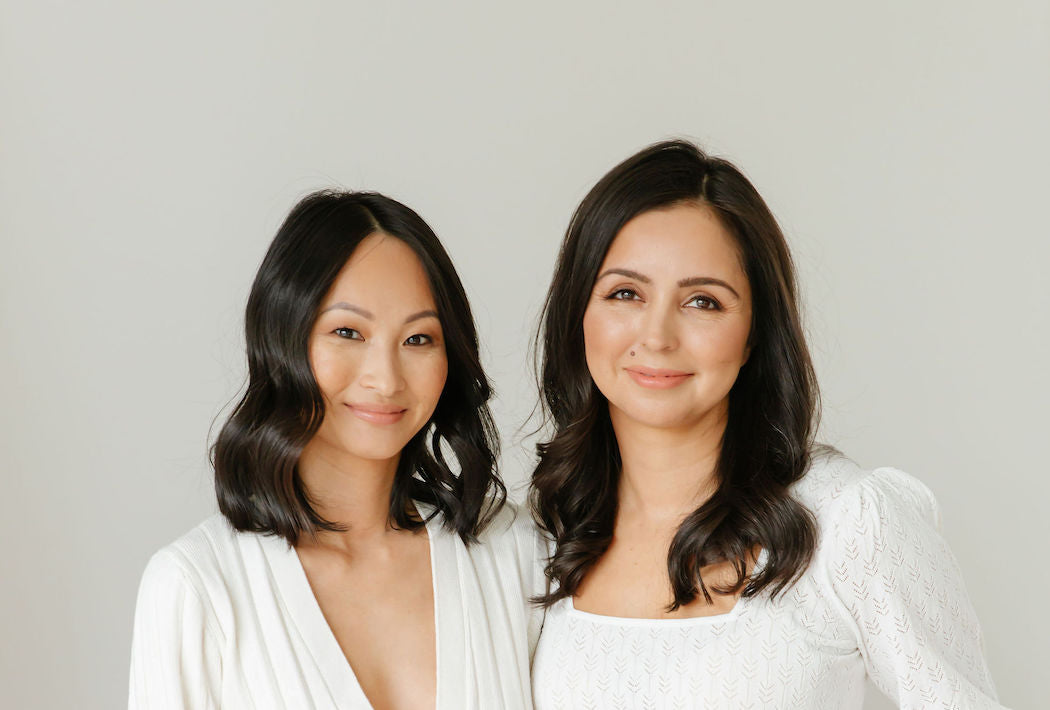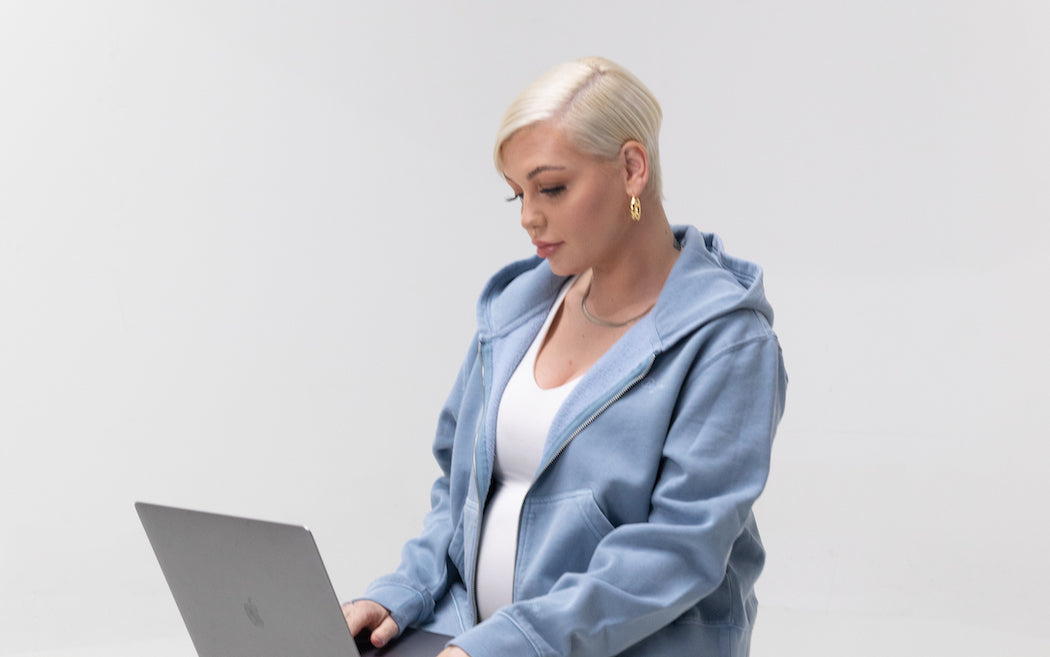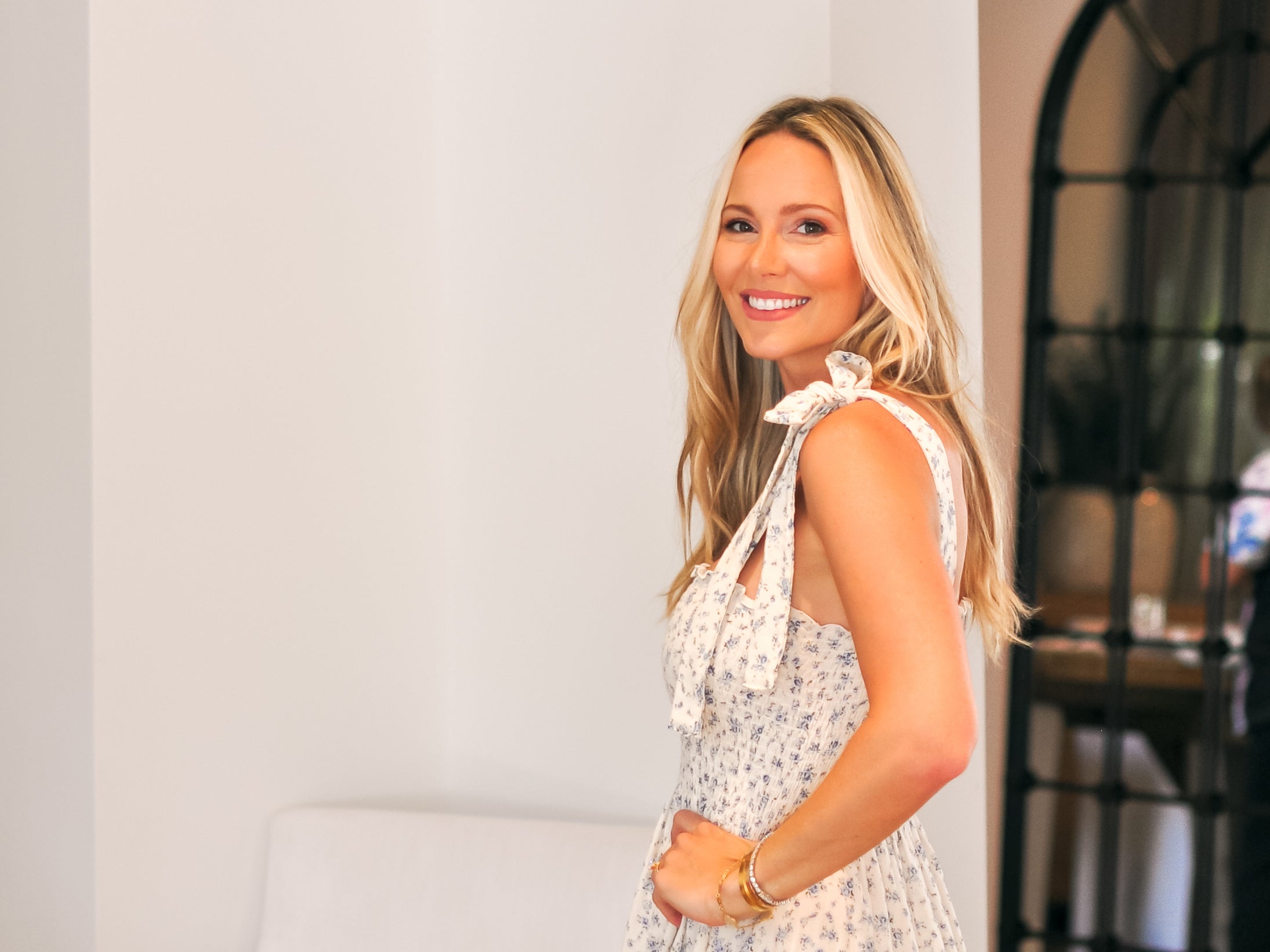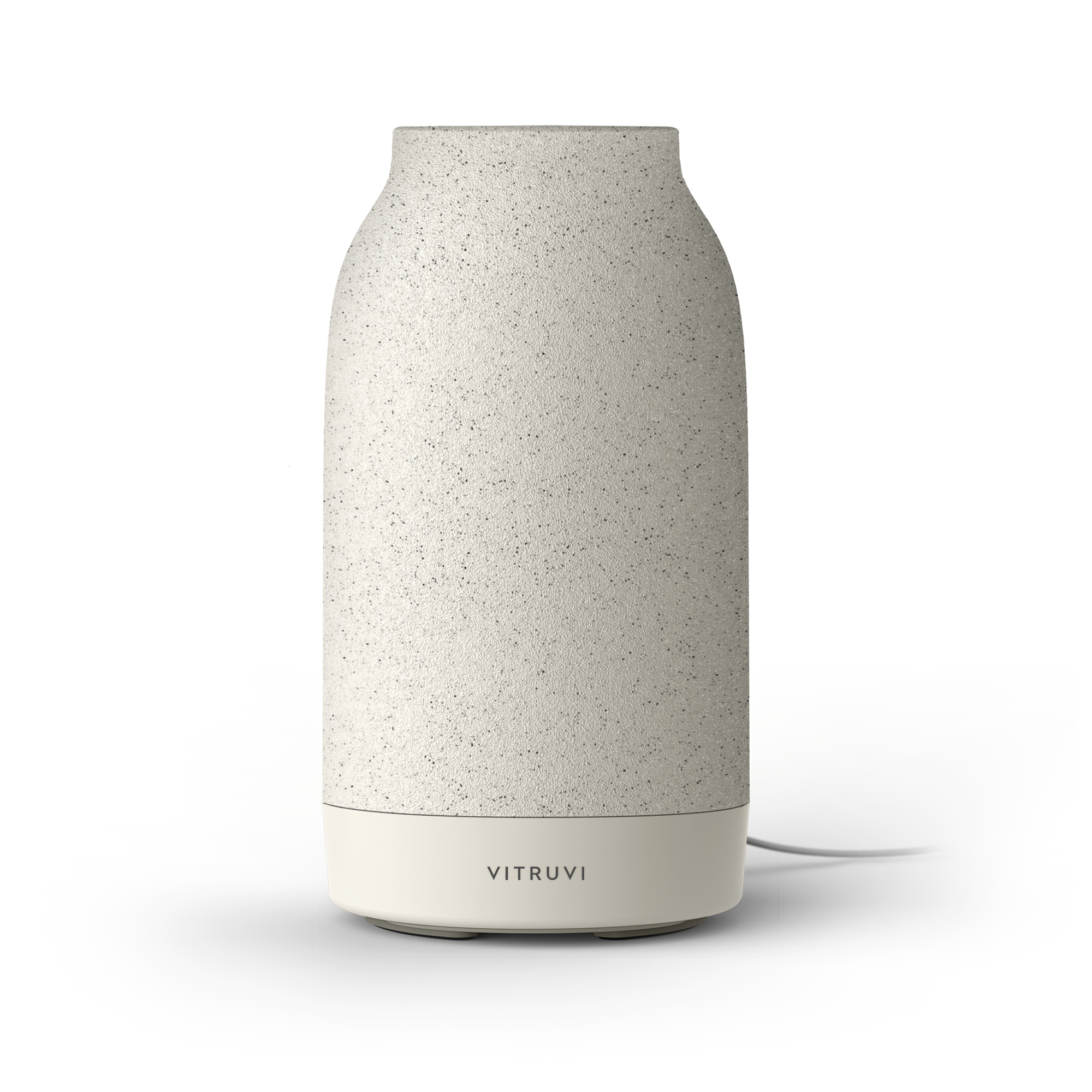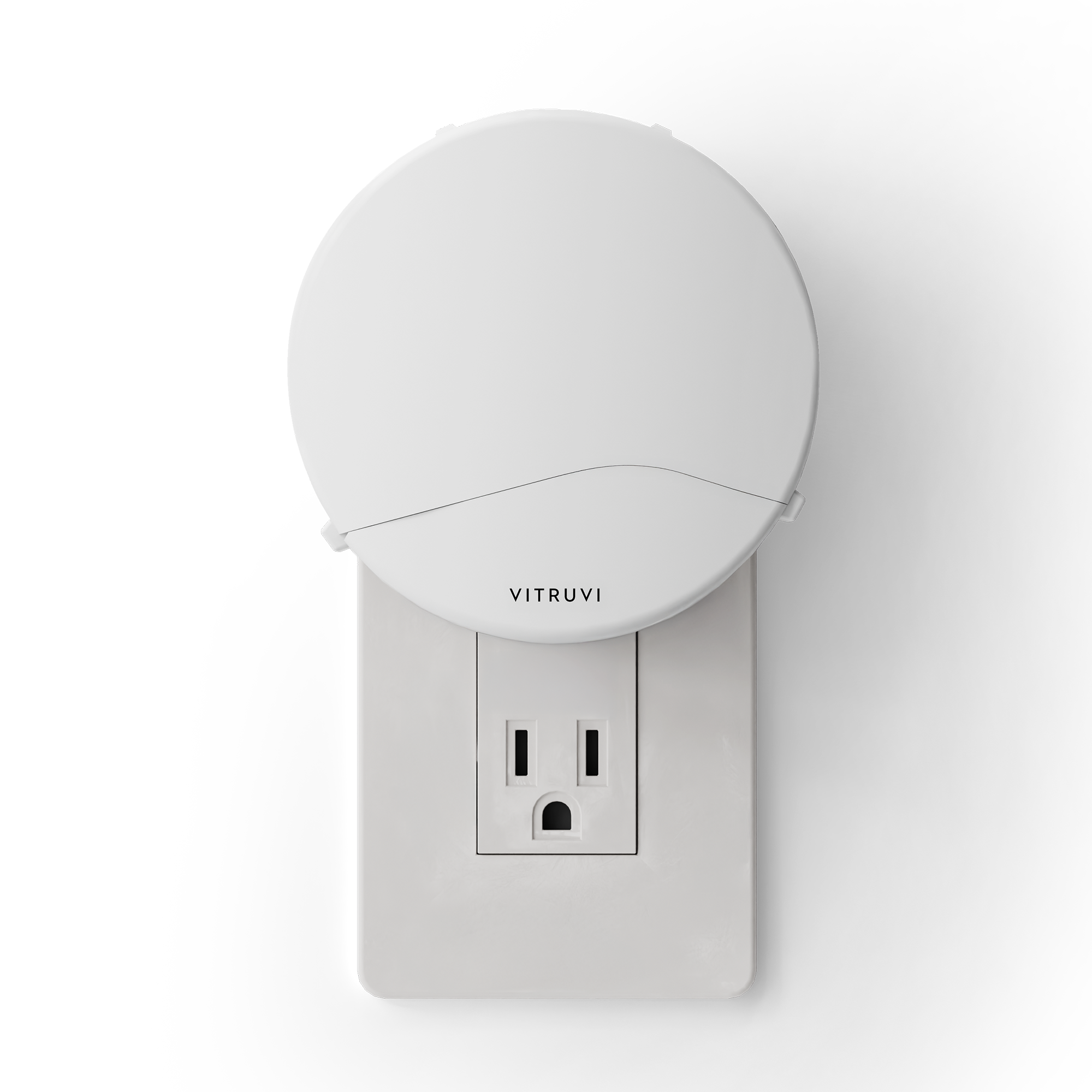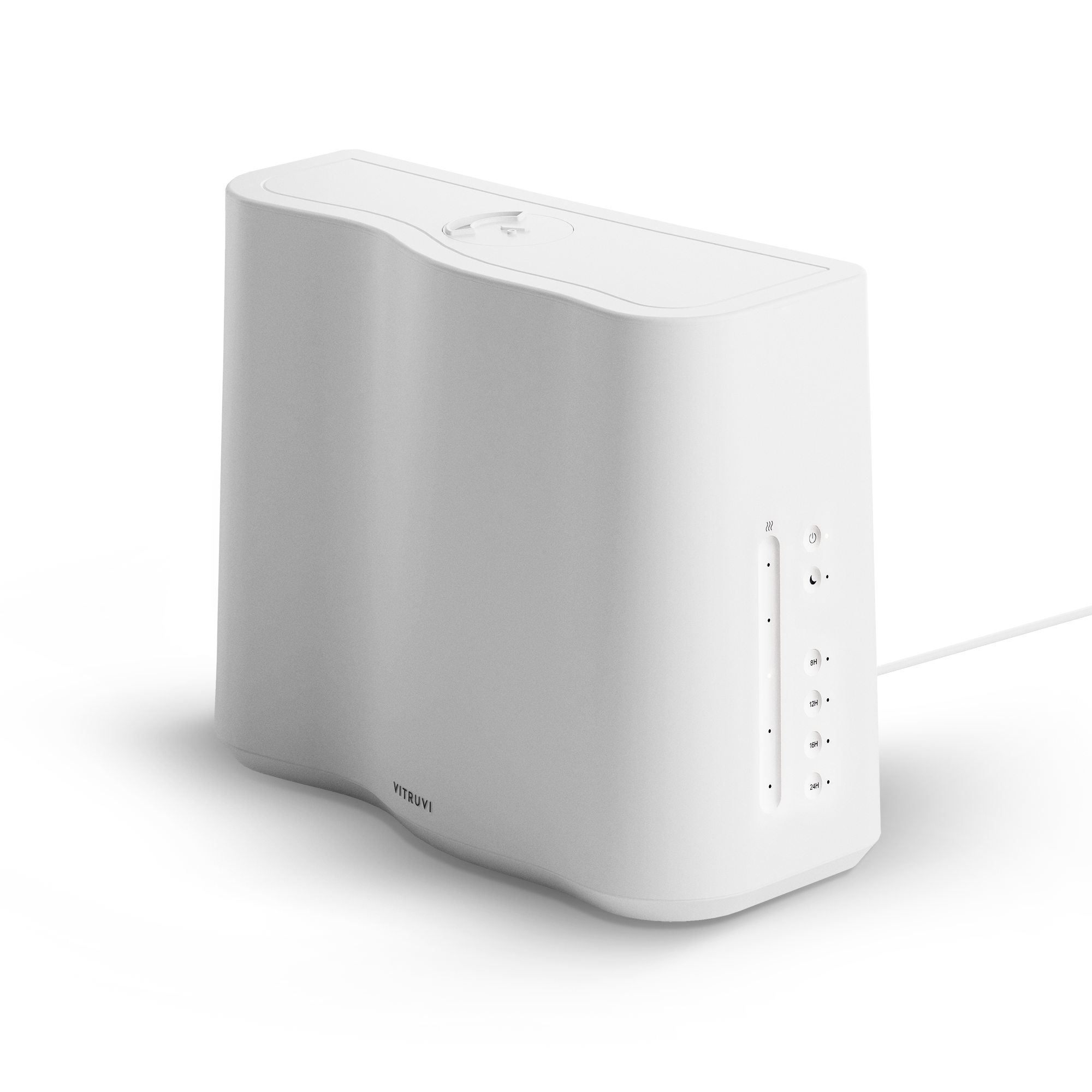Deun Ivory commands a room.
It’s not just her tall, elegant frame, which today is hugged by a light grey dress. It’s not just her hair, which billows around her shoulders. It’s not just her eyes, which are big and bright and currently accentuated with a swish of vibrant blue liner. I mean, it is all of these things, but that’s not the heart of it.
Ivory commands a room because of her energy. She’s confident and warm, quick-witted and passionate. She’s powerful yet vulnerable. She could be in a sweatsuit and she’d still make everyone turn and listen.
And listening is key here, because her message needs to be heard. Ivory is the founder of the body: a home for love, an organization she created in 2019 to help Black women heal from sexual trauma through community-based events, conversations, and initiatives. As a survivor herself—she was molested by her stepfather—Ivory knows this journey well, and is on a mission to change the narrative around Black women and abuse.

Today she’s hosting the body’s first in-person event, at Lunya in Santa Monica (it should be noted that this is at the start of March, when the coronavirus pandemic is still a distant siren in North America). She’s given a speech, she’s posed for photographs, she’s hugged attendees. She’s maybe, though I doubt it, taken a quick moment to bask in the fruits of her hard work as the room expands with the voices of happy women—all of whom want to chat with her, to thank her, to get a few moments in the rays of her sun. I get it. She’s magnetic.
“It’s giving Black women a voice to share their narratives around sexual abuse without being met with judgement,” Ivory explains of her organization. “A lot of times when we share what we’ve gone through, we’re not validated, we’re not affirmed, and people rarely see us as innocent.” We’re standing amongst some boxes and desks behind a curtain, in the makeshift preparation area of the event; it’s the only place she can speak for a few moments without being interrupted (see aforementioned magnetism). “And because we’re hypersexualized at a very young age, we essentially learn to detach from our bodies at a young age,” Ivory, who is an accomplished photographer, illustrator, and designer, continues. “So we don’t know what it’s like to be at home in our bodies. That’s something that I dealt with as a young girl being molested by my stepfather: I just felt like, ‘Oh, my body isn’t mine. It’s for the male gaze.’ So journeying back here was something that was so crucial to me gaining my voice back.”
The road back to her body was challenging. It took work to learn how to put herself first. “I think that when you struggle with detachment it’s not easy to seek pleasure, to even feel worthy of pleasure, or to even attempt pleasure,” she explains. “You’re just so disconnected all the time; you just disassociate from your body. So for me, I think that journeying back was really about listening to my body, which is something that I had never done before. So being aware of, if I’m around someone and if I feel a certain type of way, being strong enough to say, ‘Deun, remove yourself from this. You don’t have to stay here.’ I think I used to feel obligated all the time to be around men who made me uncomfortable because I didn’t want them to feel awkward. But now it’s like: I am my priority. Self-care is not a last resort, and I matter.”
That simple yet revolutionary idea—that every Black woman matters—is at the heart of the body. Through projects and events (which have gone fully digital during the coronavirus pandemic) revolving around art, wellness, and storytelling, the body is breaking down the walls that stop Black women from true healing. Having conversations about abuse, survival, recovery, and even existence can be acts of protest against the status quo. It’s through conversation and community that people learn they’re not alone; after that comes empowerment, which is where the shift really starts.
Of course, change doesn’t happen overnight, and the body shouldn’t have to do this work alone. Ivory is quick to acknowledge that “we need allies and supporters to help us do what we do. Redistributing the wealth is essential to what we’re doing.” (At vitruvi, we are proud to do our small part as an ongoing partner of the body; read more about that here.) When it comes to being an active and effective ally to Black women, Ivory highlights the importance of “actually doing the uncomfortable work: sitting with the stories,” she explains. “Sitting in the discomfort. Because it’s not about you at that moment—it’s truly about the other person. So that’s a way to serve people: just by being there and offering a safe space for people to be themselves and for them to feel like, ‘Oh, you’re a warm spirit that I can talk to. Yes, we don’t look alike, but we have a common goal.’”

Ivory mentions that many marginalized people are always in survivor mode, never able to dream outside of their current realities. She wants to change that, and it has become a driving force behind her work ethic, which is tireless. It’s why her events have quality wine and the best diffusers and beautiful branding. Because Black women have a right to these things as much as anyone else, and because healing should not be about giving survivors the bare minimum. Wellness shouldn’t have a barrier to entry.
As for her own wellness, Ivory keeps it simple. “Girl, I work out. I try to stay snatched,” she says to me, snapping her fingers. “When I’m at the gym, I ain’t think about nothing, I ain’t think about nobody but me. So doing that, and prayer and meditation in the morning.”
Those moments of self-care keep Ivory centred. But what keeps her fire alive is her service to Black women, and the belief that they can move forward with, through, and beyond their pain. “Healing through joy is possible. I’ve never heard that, especially when dealing with sexual trauma. It’s isolating, it’s daunting, it’s triggering,” she says. “But healing through joy is becoming a real thing. For me, I didn’t even know it was possible—so seeing Black women receive everything that I’ve wanted them to receive, I’m like, ‘Daangggg, this is truly divine. This is truly divine.’”


